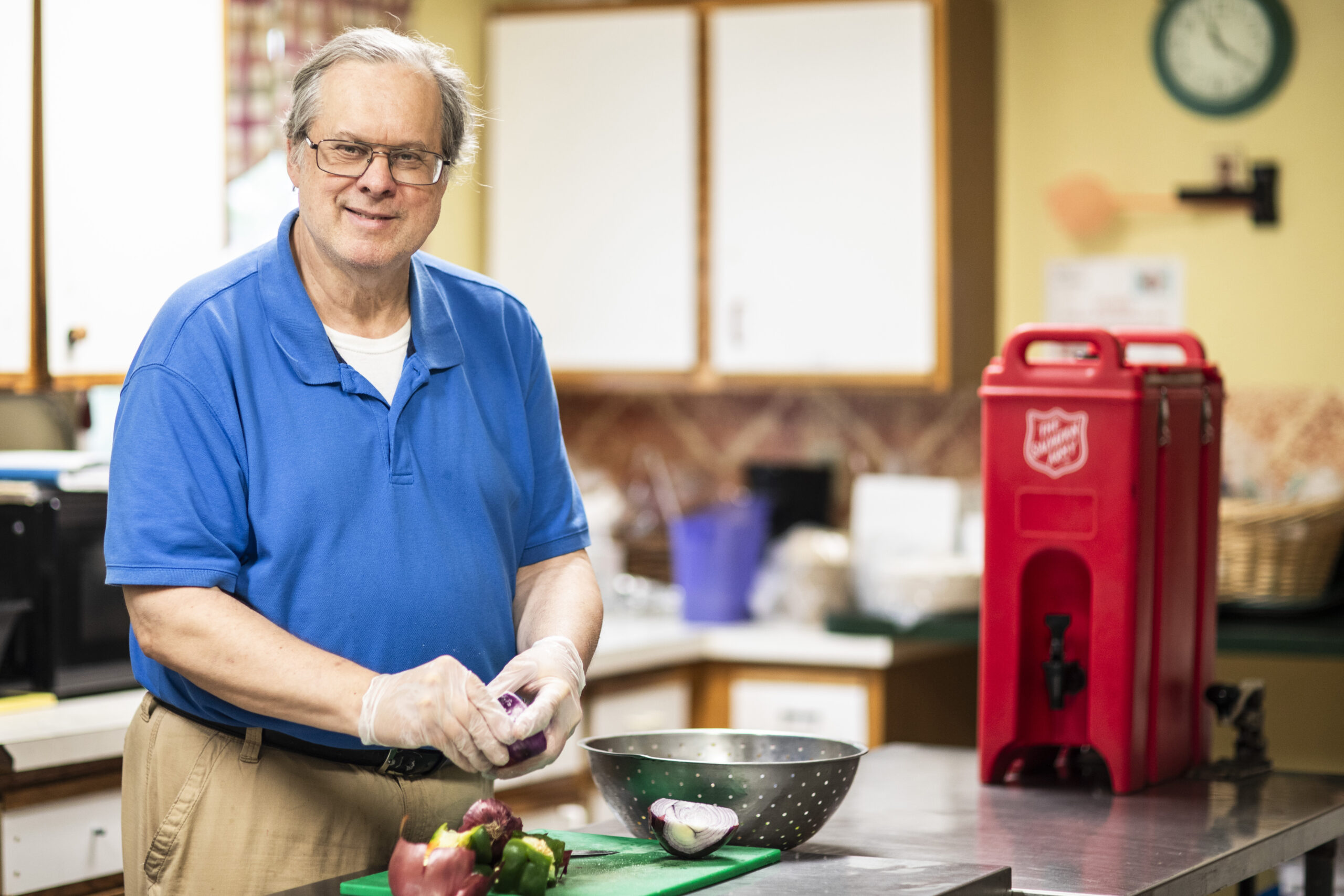Paul Witkowski
by Hugo Bravo

“Many people don’t realize how The Salvation Army can help the homeless—from picking them off the streets and feeding them to getting them into a shelter like this one, and then into an actual home,” says Paul Witkowski. “The social services organizations know, but the public usually doesn’t.”
Paul Witkowski arrived at The Salvation Army Emergency Shelter in Elizabeth, N.J., after a two-week stay at a hospital for a heart condition. His marriage of 26 years had recently ended in divorce, leaving him depressed, without a home, and unsure of his future as he tried to recover.
“Going back to work was not something I wanted to do; I was ready to retire. The Salvation Army showed me how to get that process going as I stayed with them. They treated me very well,” says Paul. He also began therapy to help him with his depression.
When Brian, the shelter’s chef, needed a new assistant, Paul approached him to offer his help. Years ago, Paul had worked in restaurants and delis. He had also been a volunteer firefighter and emergency medical technician and knew how important it was to be in service to others.
“Brian said that he trusted me and liked that he didn’t have to explain anything in the kitchen to me,” Paul remembers. “Cooking was fun and easy for me, plus I always had something to eat. The kitchen became another form of therapy.”
The Salvation Army connected Paul with Bridgeway Services, an organization that helped him find a place to live. With his roommate Michael, another resident from the shelter, they were able to afford an apartment in Elizabeth.
“When we left, Mike and I were given groceries, vouchers for the Salvation Army store to buy things for our apartment, help with our first month’s rent, and even a ride to our new home,” says Paul. He still comes back to the shelter to volunteer several days of the week.
Now taking over cooking duties when Brian is off, Paul loves coming up with different, creative meals for the residents.
“You don’t get to do that in many homeless shelters,” he says, “but I like trying something new to make someone a little happier.”
Paul has also assisted at the Elizabeth Corps’ soup kitchen and prepared breakfast and lunch for the children at the corps’ summer day camp.
“I’m always happy to help Captain Walter Droz at the corps because, if the shelter ever needs anything, he’s happy to help us too,” says Paul.
Paul has become a beloved presence at the shelter, as well as proof that The Salvation Army will do everything it can to turn a life around for the better. He is always happy to show residents how to navigate the system and make sure that important paperwork doesn’t get lost in the shuffle. If they’re patient, he knows they can have their own home again.
“A lot of people come here angry and frustrated—they’re so used to being on the streets, making their own rules. I remind them that they’re playing in the system’s rules now, and they’ll be surprised by how much help there is for them if they follow those rules. But they must do the legwork. If you see a ‘for rent’ sign somewhere you’d like to live, you need to meet with the superintendent of the building. If you see a job opening, you need to go and introduce yourself. Nothing is going to fall in your lap, but from my own experience, The Salvation Army will be there to help you every step of the way.”
Paul is part of that help. Even with his health issues, he still loves being in the building and with the staff that gave him a place to stay. Now, it’s where his mind can also stay at peace.
“Depression can always return. For me, if I start to sit around too long without anything to do, my brain feels like it’s spinning. But if I’m cooking meals, helping with deliveries, meeting new people, and showing them ways to get out of their situation, there’s no time for me to feel depressed and in my own head. There’s still so much I can do here.”

